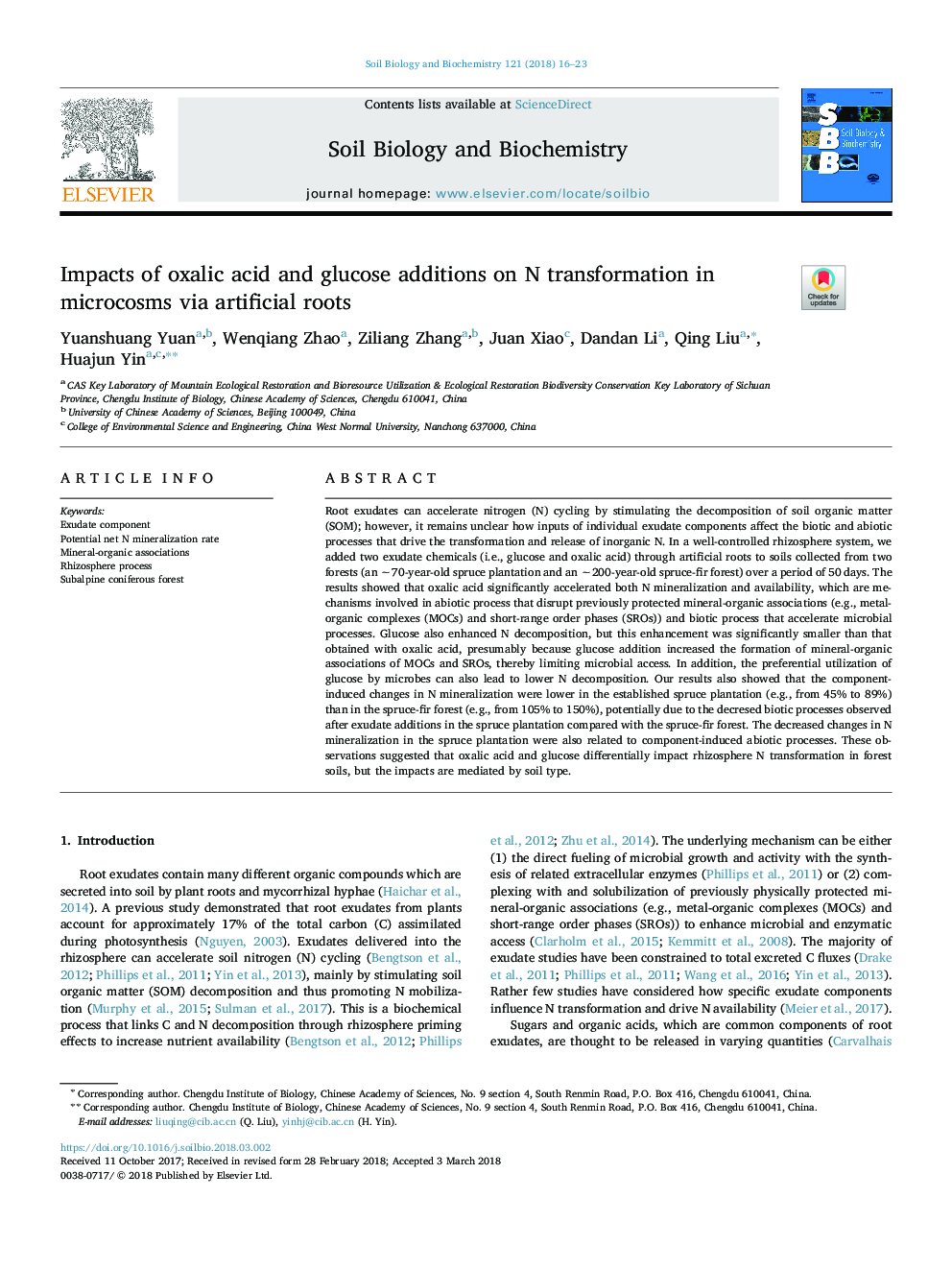| کد مقاله | کد نشریه | سال انتشار | مقاله انگلیسی | نسخه تمام متن |
|---|---|---|---|---|
| 8362747 | 1542563 | 2018 | 8 صفحه PDF | دانلود رایگان |
عنوان انگلیسی مقاله ISI
Impacts of oxalic acid and glucose additions on N transformation in microcosms via artificial roots
دانلود مقاله + سفارش ترجمه
دانلود مقاله ISI انگلیسی
رایگان برای ایرانیان
کلمات کلیدی
موضوعات مرتبط
علوم زیستی و بیوفناوری
علوم کشاورزی و بیولوژیک
دانش خاک شناسی
پیش نمایش صفحه اول مقاله

چکیده انگلیسی
Root exudates can accelerate nitrogen (N) cycling by stimulating the decomposition of soil organic matter (SOM); however, it remains unclear how inputs of individual exudate components affect the biotic and abiotic processes that drive the transformation and release of inorganic N. In a well-controlled rhizosphere system, we added two exudate chemicals (i.e., glucose and oxalic acid) through artificial roots to soils collected from two forests (an â¼70-year-old spruce plantation and an â¼200-year-old spruce-fir forest) over a period of 50 days. The results showed that oxalic acid significantly accelerated both N mineralization and availability, which are mechanisms involved in abiotic process that disrupt previously protected mineral-organic associations (e.g., metal-organic complexes (MOCs) and short-range order phases (SROs)) and biotic process that accelerate microbial processes. Glucose also enhanced N decomposition, but this enhancement was significantly smaller than that obtained with oxalic acid, presumably because glucose addition increased the formation of mineral-organic associations of MOCs and SROs, thereby limiting microbial access. In addition, the preferential utilization of glucose by microbes can also lead to lower N decomposition. Our results also showed that the component-induced changes in N mineralization were lower in the established spruce plantation (e.g., from 45% to 89%) than in the spruce-fir forest (e.g., from 105% to 150%), potentially due to the decresed biotic processes observed after exudate additions in the spruce plantation compared with the spruce-fir forest. The decreased changes in N mineralization in the spruce plantation were also related to component-induced abiotic processes. These observations suggested that oxalic acid and glucose differentially impact rhizosphere N transformation in forest soils, but the impacts are mediated by soil type.
ناشر
Database: Elsevier - ScienceDirect (ساینس دایرکت)
Journal: Soil Biology and Biochemistry - Volume 121, June 2018, Pages 16-23
Journal: Soil Biology and Biochemistry - Volume 121, June 2018, Pages 16-23
نویسندگان
Yuanshuang Yuan, Wenqiang Zhao, Ziliang Zhang, Juan Xiao, Dandan Li, Qing Liu, Huajun Yin,